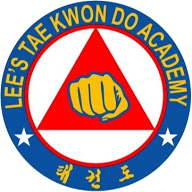Trust
Hard to earn, yet so easy to lose. That’s trust, and it’s the driving force behind instructor/student relationships.
Martial arts instruction is a close-quarter, high impact arena with powerful strikes interacting with both imaginary and real targets. Combine that with a black belt of high degree standing before you, imparting lessons in self-defense, and you can see why trust is so valuable in martial arts.
Anywhere else, this situation would sound perilous. Yet your instructor – who might even simulate the motives of an attacker – is there for your benefit and someone you respect and trust. Have you ever stopped to wonder what factors contributed to the trust you’ve awarded your instructor?
Specific examples of trust for your instructor are manifested in two responsibilities on his or her part. One, while sparring and learning new techniques you may punch or kick towards each other. You trust that at the last second, your instructor controls his or her strike and pulls back before any forceful contact is made (that trust holds true for any sparring partner.) Secondly, you trust that techniques taught by your instructor are practical and effective.
Now on the flipside, how are you honorably indebted to your instructor? For starters, your instructor expects you to give your best effort. Exhibitions of laziness and underachievement undermine the entire martial arts spirit and therefore cause you to fail in the eyes of your instructor and fellow students. Also – and most importantly – you’re expected to perform techniques safely and within your physical limitations.
Half the fun of martial arts is encompassed in progression, gaining strength and mastering form. Yet such steps must be taken at a pace that represents true learning and growth. Hastily advancing through techniques is dangerous; because in sparring you may not be able to accurately control some new techniques, thereby putting your partner in danger. Likewise, you may position yourself at risk of injury if you aren’t well trained in certain techniques and awkwardly twist and slam your joints or bones.
You see, trust is the foundation of learning in martial arts. While we are never taught to trust everyone (if so, why would we be learning self-defense?), it remains evident that instructors and fellow students bond with you to form your “martial arts family.” In this environment, both internal and external trust are musts.

